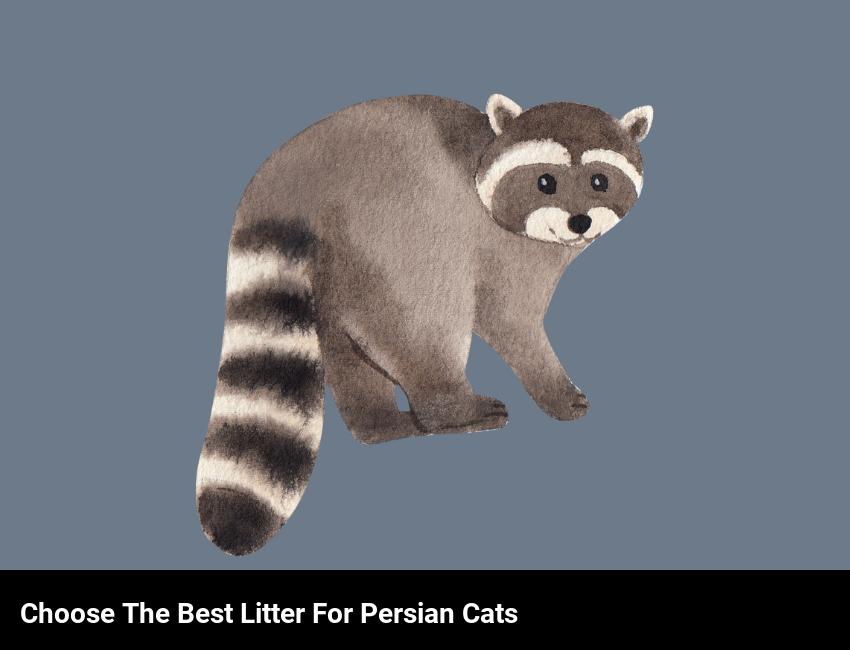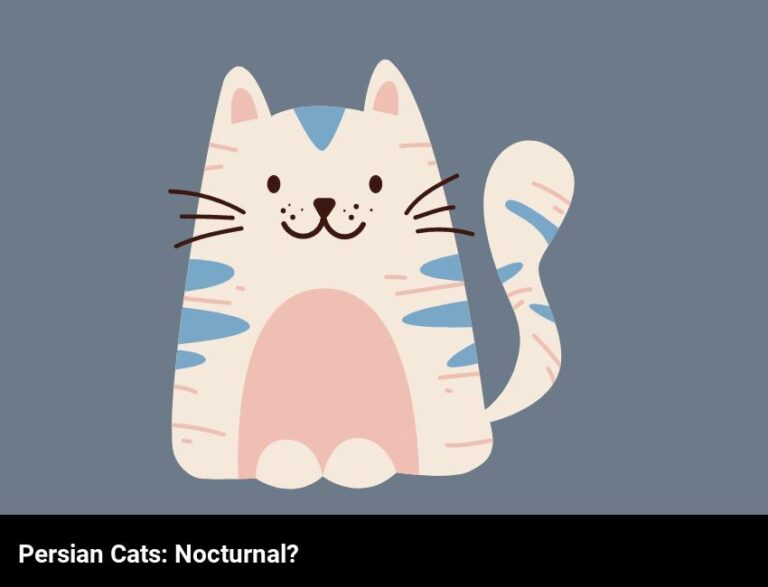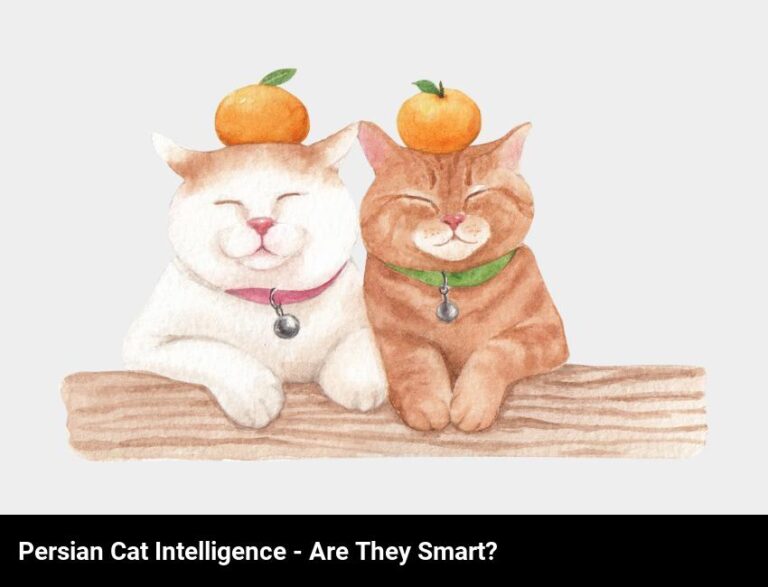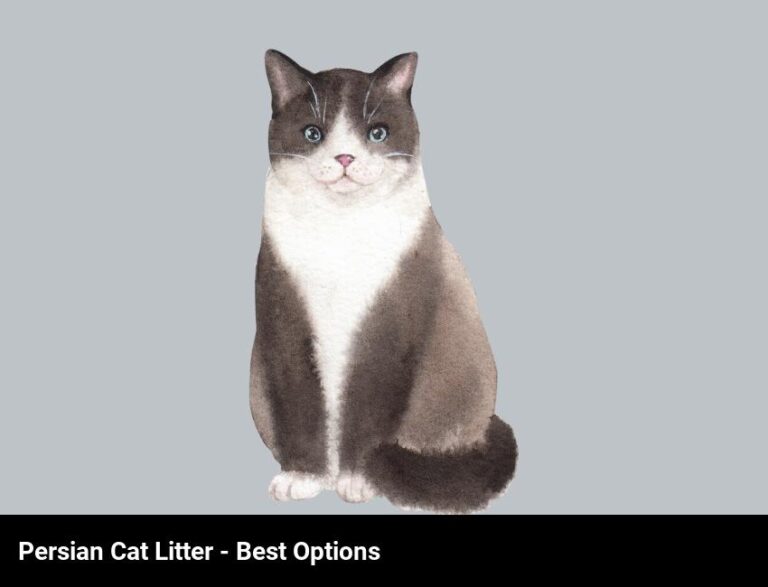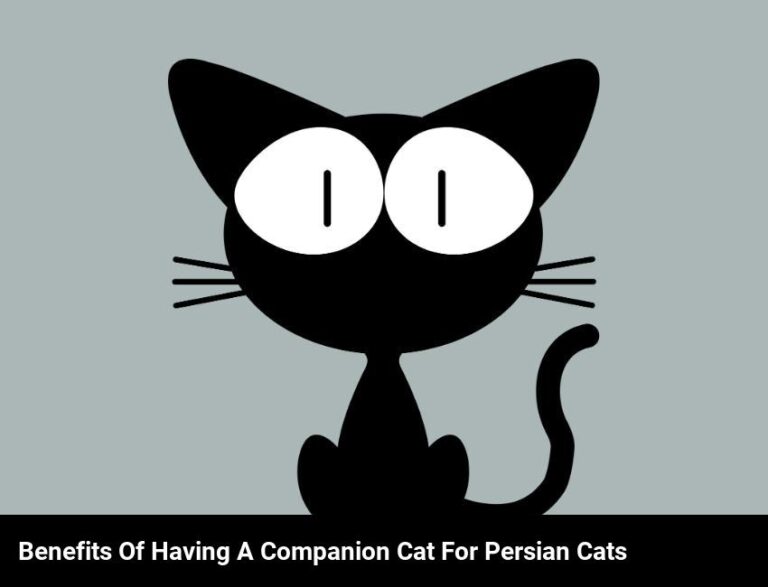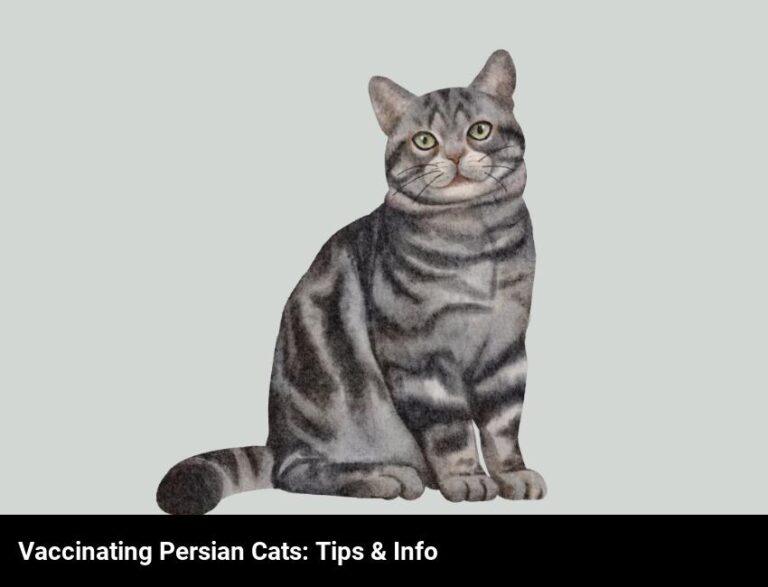Choose The Right Litter For Your Persian Cat
The best litter for a Persian cat is a clumping litter made from natural materials, such as clay, corn, or wheat. It should be low-dust and unscented, so it won’t irritate your cat’s sensitive respiratory system.
As a proud owner of a Persian cat, I know how important it is to make the right decisions when it comes to choosing the right litter for them. Unfortunately, it can be overwhelming at times, as there are so many different types of litter to choose from. In this blog, I’ll be discussing the different types of litter available, with a focus on the benefits and drawbacks of clumping litter, natural and unscented cat litter, and scented cat litter.
With clumping litter, the main benefit is that it absorbs odors, so you don’t have to worry about your house smelling like cat litter. It also makes it easier to clean the litter box, as the solid clumps can easily be scooped away. But there are some drawbacks, too. Clumping litter can be more expensive than other types, and it can also be a bit harsh on a cat’s paws.
Those looking for a more natural option can opt for natural and unscented cat litter. The main benefit of this is that it’s made of natural, biodegradable materials, making it more eco-friendly than other types of litter. However, it’s not as effective in absorbing odors, so you may have to change the litter more often.
Finally, there’s scented cat litter. The main benefit of this is that it helps to mask the smell of cat pee, leaving your house smelling fresh. However, the scent can be too strong for some cats, and it’s not as effective in absorbing odors.
Choosing the right litter for your Persian cat can be tricky, but with the right information, you can make an informed decision.
What are the different types of cat litter?
When it comes to choosing the right litter for your Persian cat, you need to know what type of litter to look for. There are several types of cat litter available, so it’s important to familiarize yourself with the different options.
First, there’s the classic clay litter. This is made from non-clumping clay and is one of the most popular types of litter. It’s easy to use and clean up, and it’s relatively inexpensive. The downside is that it can be dusty, so it’s important to use a litter box with good ventilation.
Another type of litter is clumping litter. This type of litter is made from bentonite clay, which forms clumps when it comes into contact with urine. This makes it easy to clean the litter box and separate the clean litter from the dirty. The downside is that it’s more expensive than clay litter.
If you’re looking for a more natural option, there’s also biodegradable litter. This type of litter is made from natural materials like wood, corn, or paper pellets. It’s eco-friendly and doesn’t contain any synthetic ingredients, so it’s a good choice if you’re looking for an all-natural litter.
Finally, there’s the newer crystal litter. This type of litter is made from silica crystals, which absorb urine and reduce odors. It’s one of the most expensive types of litter, but it’s also the most efficient at controlling odors.
Each type of cat litter has its own advantages and disadvantages, so it’s important to consider your cat’s needs when choosing the right litter.
What are the benefits of using clumping litter for persian cats?
Making cleanup easier: Clumping litter is a great choice for Persian cats, as it’s easy to scoop out the clumps of waste, leaving the rest of the litter in the box. This means less time spent cleaning up and more time spent cuddling with your kitty!
- Lasts longer: Clumping litter also lasts longer than traditional non-clumping litter, meaning that you don’t need to replace it as often. This is great for busy cat parents who already have enough to do!.
- Less tracking: Persian cats are known for their long, silky coats, but this can lead to a lot of kitty litter tracking around the house. With clumping litter, the grains are smaller, so less tracking and less mess.
- Odor control: Clumping litter also absorbs odors better than non-clumping litter, so your litter box will smell fresher for longer. This is great for keeping your home smelling nice!.
- Non-toxic: Finally, clumping litter is generally non-toxic, so it’s a safe choice for both you and your furry friend.
What are the benefits of natural and unscented cat litter?
When it comes to choosing the right litter for your Persian cat, natural and unscented options offer several benefits! Here’s why:
- Natural and unscented cat litter is eco-friendly and non-toxic, making it the perfect choice for cats with sensitive noses or allergies.
- Natural and unscented litter is usually made of clay or plant-based ingredients, which is much more natural and biodegradable.
- Natural and unscented litter lacks the strong scent of regular litter, which helps to create a more pleasant living environment for your pet.
- Natural and unscented litter also helps to reduce odours and keeps your cat’s litter box clean longer.
- Finally, natural and unscented litters are more affordable than regular litters, so you can save money while still providing your pet with a clean and healthy environment.
What are the benefits of scented cat litter?
If you’re looking for a litter that can make your Persian cat’s life easier and more comfortable, you should consider getting scented cat litter. This type of cat litter comes with a range of benefits that can make your cat’s litter box experience better. Here are some of the key benefits of scented cat litter:
- Improved Odor Control: Scented litter has an odor-neutralizing agent that helps to reduce the smell of your cat’s waste and keep the litter box more pleasant.
- Easier Clean-up: The added scent helps to mask any odors that can linger after your cat has used the litter box. This helps to make clean-up easier and faster.
- More Hygienic: The scented litter can help to keep the litter box more hygienic by reducing the spread of bacteria and other germs.
- More Comfortable: The added scent can help to make your cat feel more comfortable and relaxed when using the litter box, giving them a more positive experience.
- Long-lasting: Scented litter can last longer than regular litter, meaning you don’t have to change it as often.
These benefits make scented cat litter an ideal choice for Persian cats. Not only does it help to reduce odors and keep the litter box hygienic, but it also makes your cat’s experience more comfortable and enjoyable. With these benefits, you can be sure that your Persian cat will have a better litter box experience.
What are the drawbacks of clumping litter?
Clumping litter has some drawbacks that you should be aware of before choosing it for your Persian cat. First, clumping litter can be more expensive than other types of cat litter. It also tends to produce a lot more dust than non-clumping litter, which can be irritating to both cats and humans. Additionally, clumping litter can be harmful to cats if ingested. Ingestion of clumping litter can cause intestinal blockages that can be life-threatening. Finally, clumping litter is not very environmentally friendly and can be difficult to dispose of in traditional ways.
However, if you want to use clumping litter for your Persian cat, there are some steps you can take to minimize the negatives. Using clumping litter made from natural materials, such as corn or wheat, can help to reduce dust and costs. Additionally, always be sure to clean your cat’s litter box regularly and dispose of used clumping litter in the garbage. By taking these steps, you can help to ensure that your cat is safe and happy with their clumping litter.
What are the drawbacks of natural and unscented litter?
If you’re looking for the best litter for your Persian cat, natural and unscented litter are both great options. But there are a few drawbacks to consider.
First, natural and unscented litter is usually more expensive than scented litter. It’s not a huge difference, but it does add up over time, so if you’re on a budget, you may want to opt for the cheaper option–scented litter.
Second, natural and unscented litter doesn’t mask odors as well as scented litter. So, if you’re looking for a litter that will keep the smell of your cat’s waste down, you may want to go with a scented option.
Finally, natural and unscented litter may be more difficult to scoop. Some cats prefer the feel and texture of natural or unscented litter, but if you’re trying to keep your litter box clean, it’s not always the easiest option.
Overall, natural and unscented litter is a great choice for cats, but it’s important to weigh the pros and cons before making your decision. Consider your budget, how well the litter masks odors, and the ease of scooping when deciding which litter is best for you and your cat.
What are the drawbacks of scented cat litter?
When it comes to choosing the right litter for your Persian cat, scented cat litter may seem like a tempting option. Unfortunately, there are a few drawbacks to keep in mind.
For one, the added fragrance can be overwhelming for both you and your cat. While you may like the smell of the litter, your cat’s sense of smell is much more sensitive than yours. The strong scent could be irritating and even bothersome for your pet, which could lead to stress and discomfort.
Another issue with scented cat litter is the potential for allergies. Many cats are sensitive to strong smells, and the scent of the litter may cause an allergic reaction in your pet. If your cat starts sneezing or has red, itchy eyes after coming in contact with the litter, it’s best to switch to an unscented option.
Finally, scented cat litter may also be more expensive than unscented varieties. The added cost may not be worth the benefit of a pleasant smell if it poses a risk to your pet’s health and wellbeing.
When it comes to picking the right litter for your Persian cat, consider the drawbacks of scented cat litter and opt for an unscented variety. Not only will this be more comfortable for your pet, but it may also be less expensive.
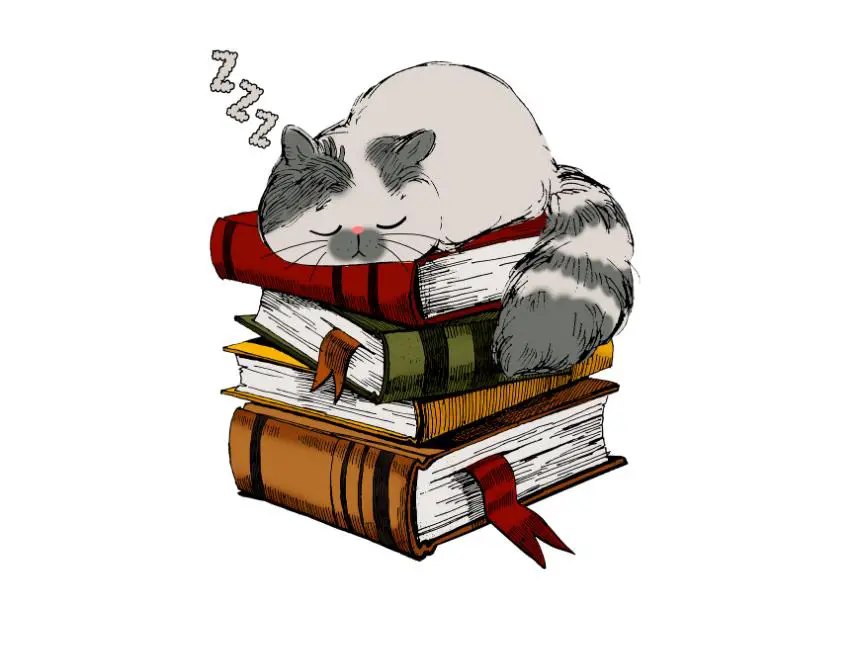
Frequently Asked Questions
What should i consider when choosing the right litter for my persian cat?
When choosing the right litter for your Persian cat, consider the type of litter (clumping or non-clumping), your cat’s preference, dust levels, odor control, and cost. Clumping litter is easier to maintain, while non-clumping litter is more cost-effective. Consider your cat’s preference by observing which type of litter they prefer to use. Dust levels can be an important factor, as too much dust can irritate your cat’s respiratory system. Odor control is also important, as some litters are better at controlling odors than others. Finally, cost should be taken into account, as some litters may be more expensive than others.
Are there any special features that a litter for a persian cat should have?
When selecting a litter for your Persian cat, there are some special features to look out for. A low dust litter is ideal, as Persian cats have long fur that is easily irritated by dust. A clumping litter is also preferable, as it makes it easier to scoop out waste. Additionally, you may want to choose a litter that is scented to help mask any odors. Finally, a litter with larger granules is a good option, as these are less likely to stick to your cat’s fur.
Is there a difference in the type of litter that works best for different breeds?
Yes, there is a difference in the type of litter that works best for different breeds. When choosing the right litter for your Persian cat, consider the size of the litter granules, the absorbency, and the dust content. Larger granules, such as clumping litter, are ideal for larger cats, as they are less likely to be tracked around the house. For Persian cats, however, look for a finer litter that is highly absorbent and has low dust.

